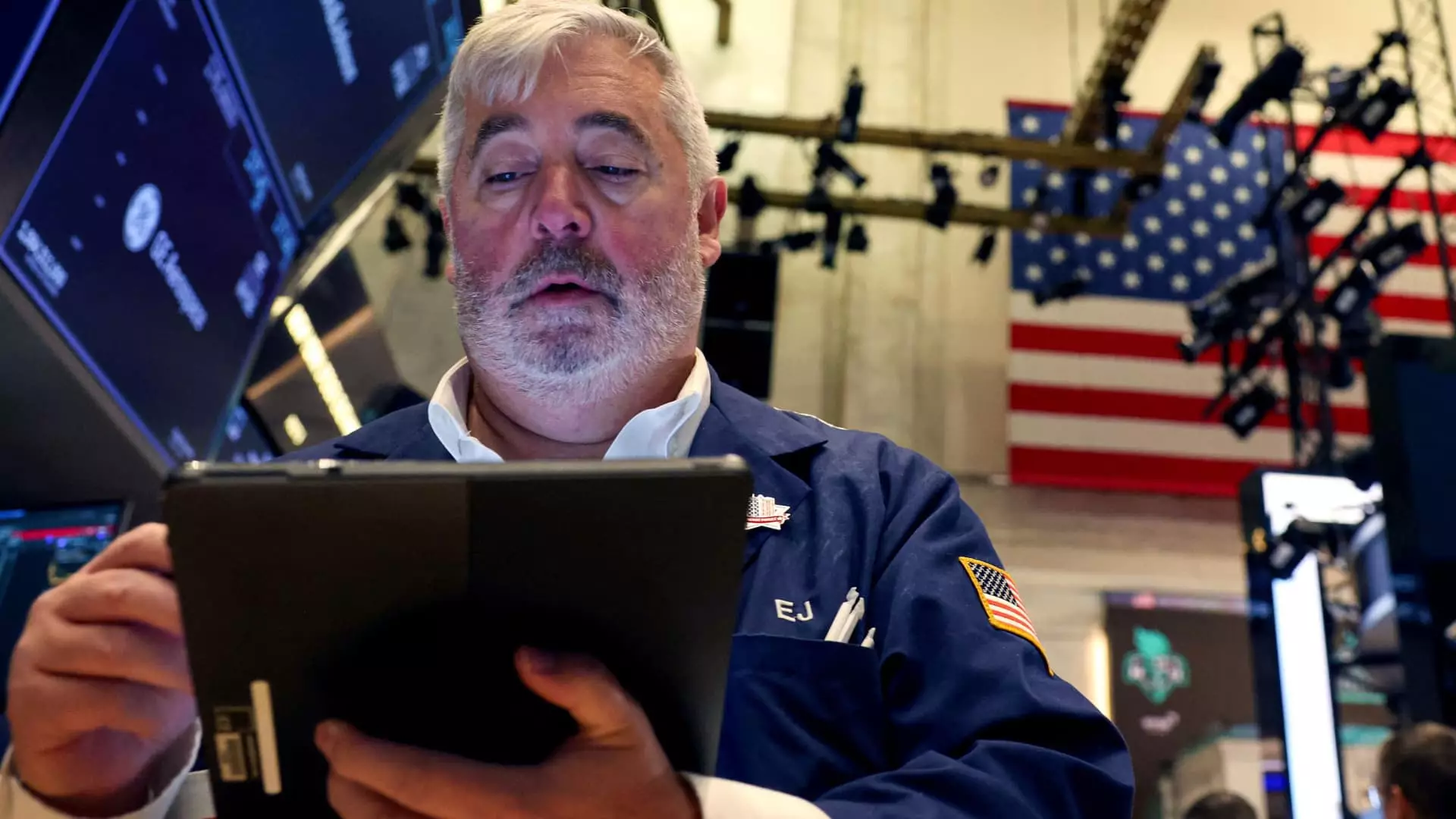In an electrifying overnight trading session, Treasury yields surged, reflecting the tensions surrounding the closely contested presidential race between Vice President Kamala Harris and former President Donald Trump. The 10-year Treasury yield saw a significant increase, jumping 14 basis points to 4.431%, a peak not witnessed since early July. Similarly, the 2-year Treasury yield rose 8 basis points to 4.285%, marking its highest point since the end of July. Such movements in the bond market indicate how investors are reacting to shifting political landscapes and anticipated economic policies. This phenomenon highlights the intricate relationship between market sentiment and political events, where fluctuations in yields can act as barometers for investor confidence.
As the votes poured in, the initial data suggested a favorable outcome for Trump, triggering speculation among traders regarding the future trajectory of bond prices and yields. There were projections from major media outlets, including NBC News, indicating Trump had clinched a crucial victory in North Carolina; however, several battleground states, such as Pennsylvania and Georgia, remain too close to call. Wall Street’s consensus leading up to the elections hinted at a possible spike in bond yields should Trump secure the presidency. This anticipation stems from expectations that a Republican administration could pursue aggressive fiscal strategies, including tax cuts and increased tariffs, potentially leading to wider fiscal deficits and renewed inflationary pressures.
Financial experts express concerns regarding the implications of a unified Republican government—a potential outcome that could see Republicans controlling both Congress and the White House. Such political dominance could catalyze a wave of tax reductions and substantial spending initiatives. Jeremy Siegel, a finance professor at the Wharton School, mentioned in a CNBC interview that the bond market could face instability under these circumstances. Investors are likely to demand higher yields in exchange for holding government debt, fearing an uptick in inflation as the administration pushes forward with expansive fiscal policies.
Byron Anderson, head of fixed income at Laffer Tengler Investments, echoed this sentiment, noting that the bond market is already responding to these expectations, indicating a sell-off across various segments of the yield curve. The anticipation of a Trump victory is influencing market movements, as investors position themselves to take advantage of shifts in fiscal policy.
Market analysts predict that yields could rise sharply—potentially approaching 4.5%—if Trump emerges victorious, while a Harris victory could see yields retreat towards the 4% mark. Stephanie Roth, chief economist at Wolfe Research, outlined these opposing scenarios, underscoring the market’s tendency to adapt in response to election outcomes. Siegel advised that a divided Congress, irrespective of which candidate prevails, might be preferable for markets, as it could limit the extent to which either administration could implement far-reaching policy changes.
The response of the bond market to political events illustrates the significant interdependence between economic indicators and political developments. As seen in September, the benchmark 10-year Treasury yield experienced a substantial increase, marking a pivotal moment for financial markets.
Compounding the situation is the upcoming Federal Reserve meeting, where a decision regarding interest rates is expected. Analysts widely predict a potential rate cut of a quarter-point, a move that would further impact the bond landscape. Tim Urbanowicz, head of research and investment strategy at Innovator ETFs, remarked on the prevailing sentiment that Trump could be leading the race, reinforcing apprehensions about potential market volatility and shifts in investor strategies.
The intersection of political dynamics and market reactions exemplifies the fragility and responsiveness of financial markets to election outcomes. Investors, keenly aware of the possible implications of this presidential race, are navigating a complex terrain where yields, inflation, and governmental policies remain intricately linked. As the results continue to unfold, the ramifications of this electoral contest on the economy and investor strategies will undoubtedly be profound.

